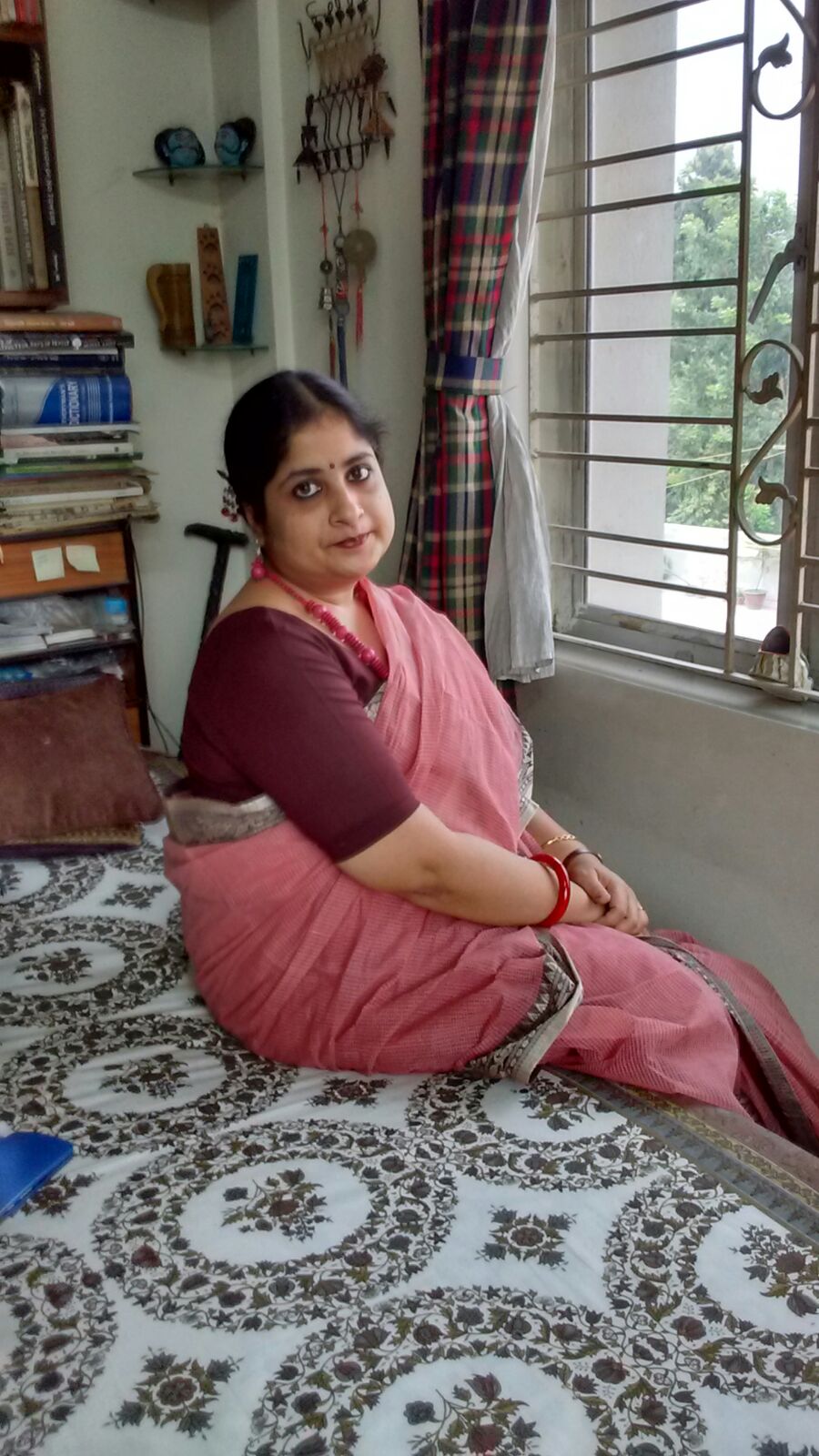The wait is over
Day 86. It’s been a long, long break and just as annoying as those long commercial breaks on TV that make you forget what you were actually watching. Breaks are meant for switching channels and I have been switching too, a little tentatively maybe, as I tried out and finally picked up my first pair of jeans. Breaks are also meant for finishing work at hand… a quick call, a trip to the kitchen or anything else that you may have kept pending. But all the while, you are waiting. Waiting for the show to begin again. It’s been a long wait. With each passing day, I would wonder to myself “what! Another day without a sari!”. But as all waits are bound to end, this one did too. And what better day to end the wait but Mahalaya, a day that signals the end of a long wait. A wait for cotton clouds, for clear blue skies, of fragrance in the air, of happiness all around, of the rustle of new clothes, of the aroma of food, of smiles, of joy. For, Durga brings with her all this and more (ever wondered if Singhamama charges her for excess baggage?). The wait, in fact, begins a year in advance. As the last of the idols are immersed in the river, and the beats of the dhaak die down, and the lights suddenly dim, hands get to work on clay once again and plans are made for the next Puja. It all begins with Mahalaya. Mahalaya signifies hope, of the triumph of good over evil, of happiness over sorrow. And nothing warms the human heart more than hope. My earliest memories of Mahalaya are of waking up, or rather being woken up, torn between going back to sleep and joining the others in welcoming the Devi. Eventually, the Devi would always win. As my grandmother switched on the radio, all of us would troop into her room and sit scattered around. Listening to the deep baritone of Birendrakrishna Bhadra, eyes half-shut, not in devotion, but in sleep. My mother and aunt would make tea for everyone and even I would be allowed a few sips of a milky concoction that was meant to be a substitute of the real thing. At that time, I did not understand a single word of what was read out or sung but somehow those moments of huddling around a radio signified the wait for Durga Puja, when school would be shut, I would wear new clothes and new shoes (despite the blisters) and go around pandals, keeping count of how many I had seen. And then, we left Calcutta and Mahalaya no longer was a holiday and Mahalaya was no longer on radio. But Baba continued to do the tarpan and Mahalaya continued to signify a wait, a wait to go home. There were no holidays on Durga Puja, but we would almost always come home during Diwali. Our homecoming would happen soon after Durga bade farewell and returned, leaving in everyone a hope for the next Puja and starting the trail for another wait. Aschhe bochhor abar hobe!


I Always like your moon like face, chubby cheeks and dimple lips along with the sarees you wear. You look elegant and graceful in every photo which I admire most and each and every picture of yours.